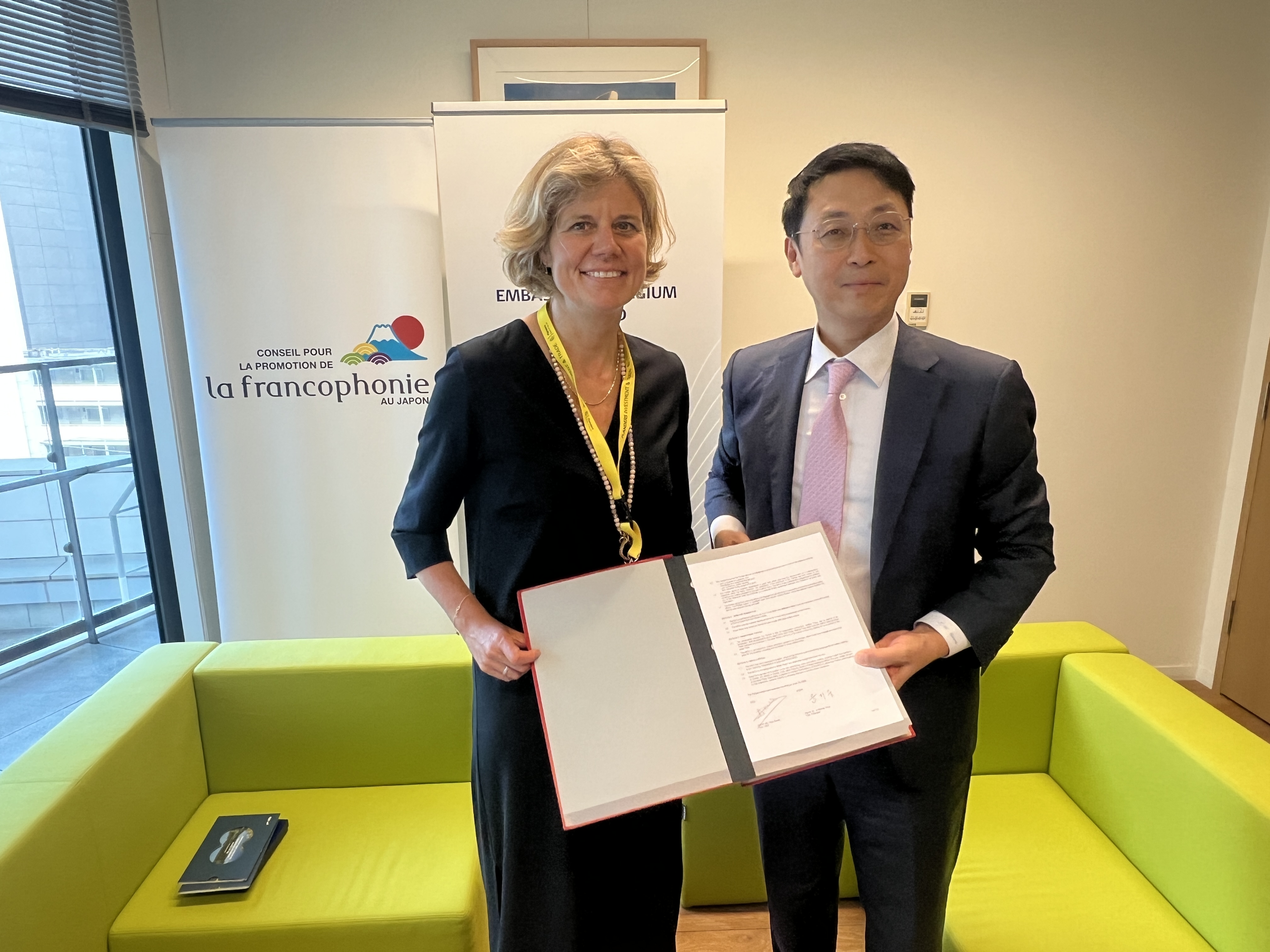G-STIC symposium in Japan: strengthening global research for sustainable development
On June 16 2025, G-STIC and Japan’s RIKEN institute co-hosted a high-level symposium at the Belgian Embassy in Tokyo. Bringing together leading researchers, policymakers, and industry experts from around the world, the event explored how research institutions can act as essential connectors between science, technological innovation, and societal needs in pursuit of the UN Sustainable Development Goals (SDGs).

Turning research into real-world impact for the SDGs
Building on the momentum of G-STIC’s recent side event at the UN Science, Technology, and Innovation Forum, the symposium highlighted the importance of international collaboration in translating research into real-world impact. Discussions centred on climate action, universal health care, and inclusive growth; all underlining that globally anchored science-and-innovation partnerships are vital to delivering scalable solutions for sustainable development.
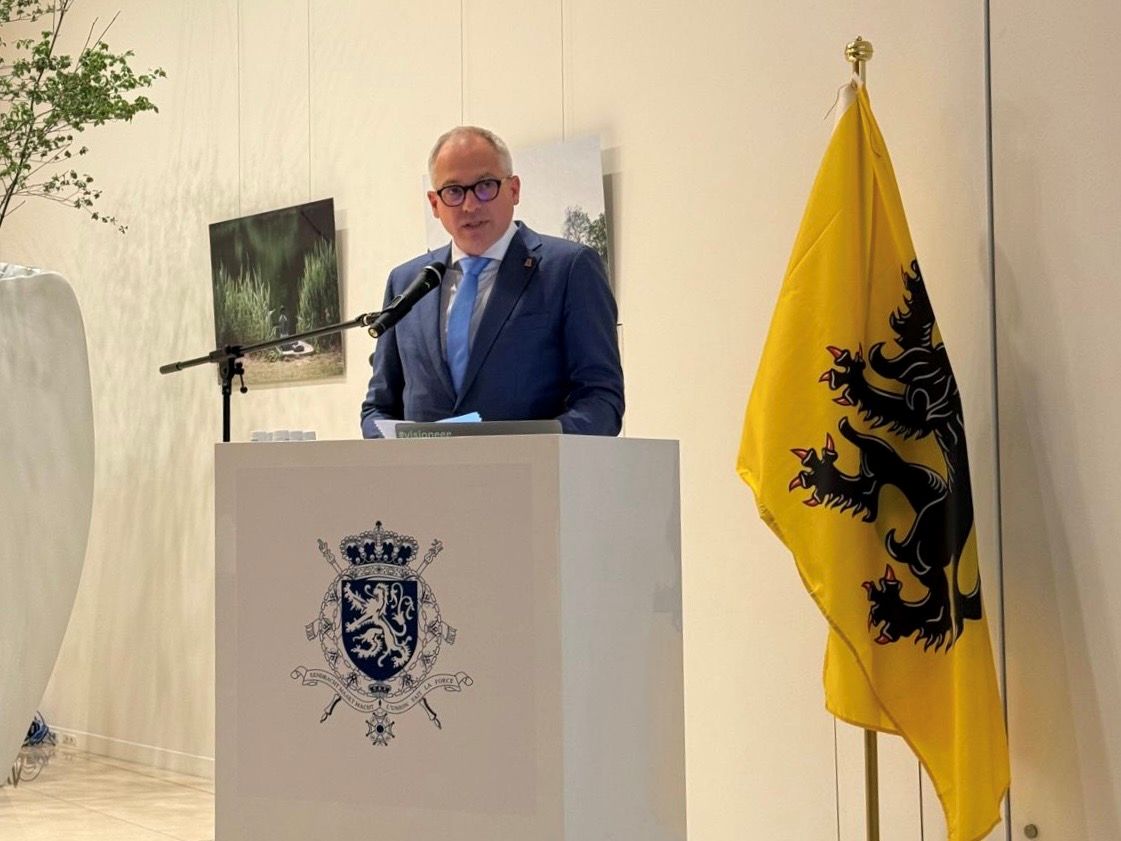
Opening by Matthias Diependaele, Minister-President of Flanders
The symposium opened with a welcome address by H.E. Matthias Diependaele, Minister-President of Flanders (Belgium). He reaffirmed Flanders’ strong commitment to the Agenda 2030. Emphasising the importance of bridging policy and innovation, he underscored how regional governments and research networks can drive meaningful progress on the SDGs, especially through international partnerships that link scientific excellence to societal needs.
Setting the scene – keynotes on the global role of research organisations
The keynote session brought together expert voices from Japan, Belgium, and South Korea to set the tone for the day’s discussions. Professor Motoko Kotani (Tohoku University and RIKEN) opened with insights into the UN framework for STI for the SDGs and Japan’s strategies to align fundamental research with sustainable innovation. Ms. Inge Neven (CEO, VITO, Belgium), stressed the need for innovation ecosystems, clean technology, and science-informed policy to turn knowledge into impact. Dr. Ji Woong Yoon (President, STEPI) provided the South Korean perspective on aligning research agendas with national policy and international collaboration to accelerate sustainable development. Together, they highlighted the vital role of research institutions in bridging knowledge and action.
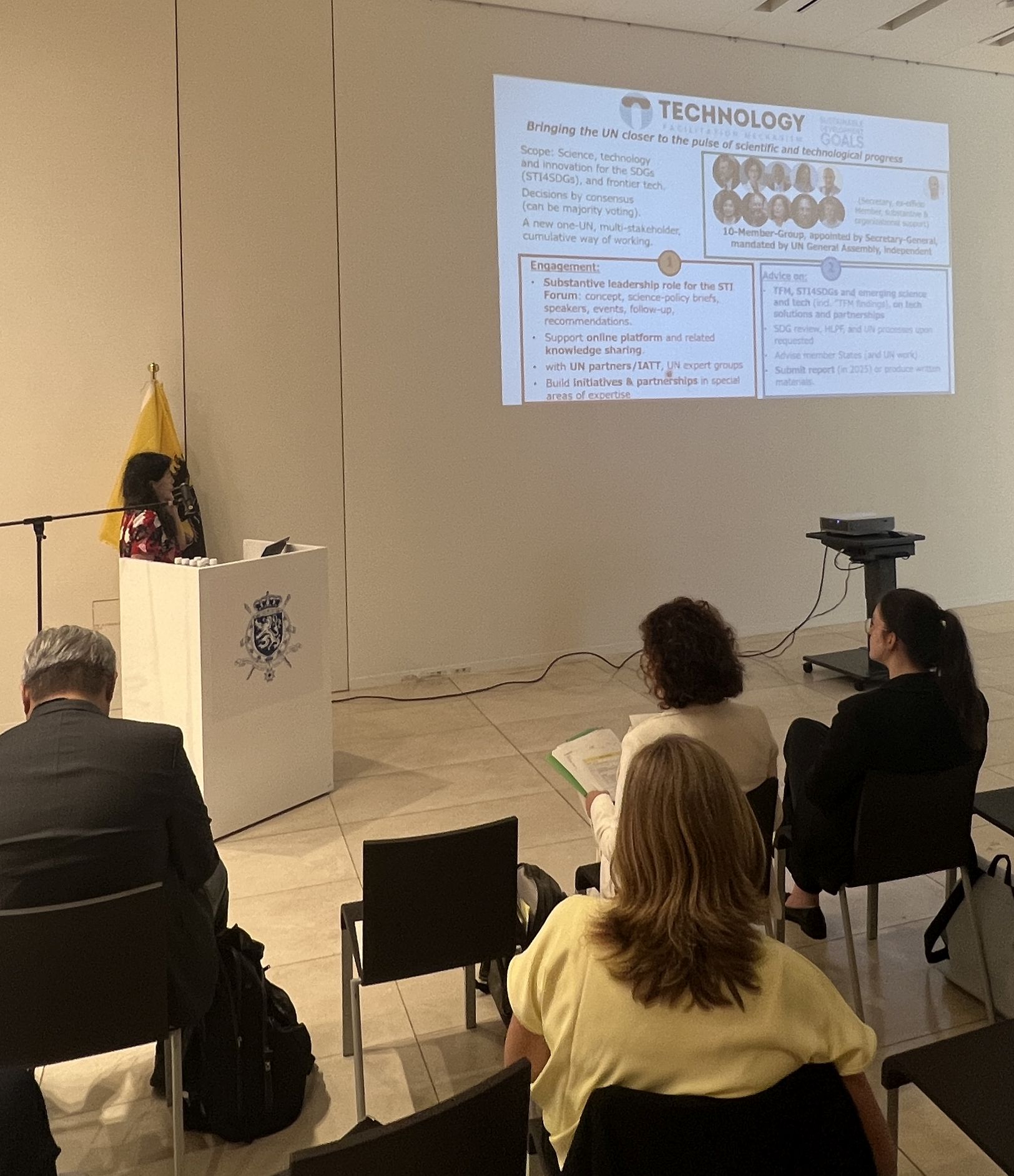
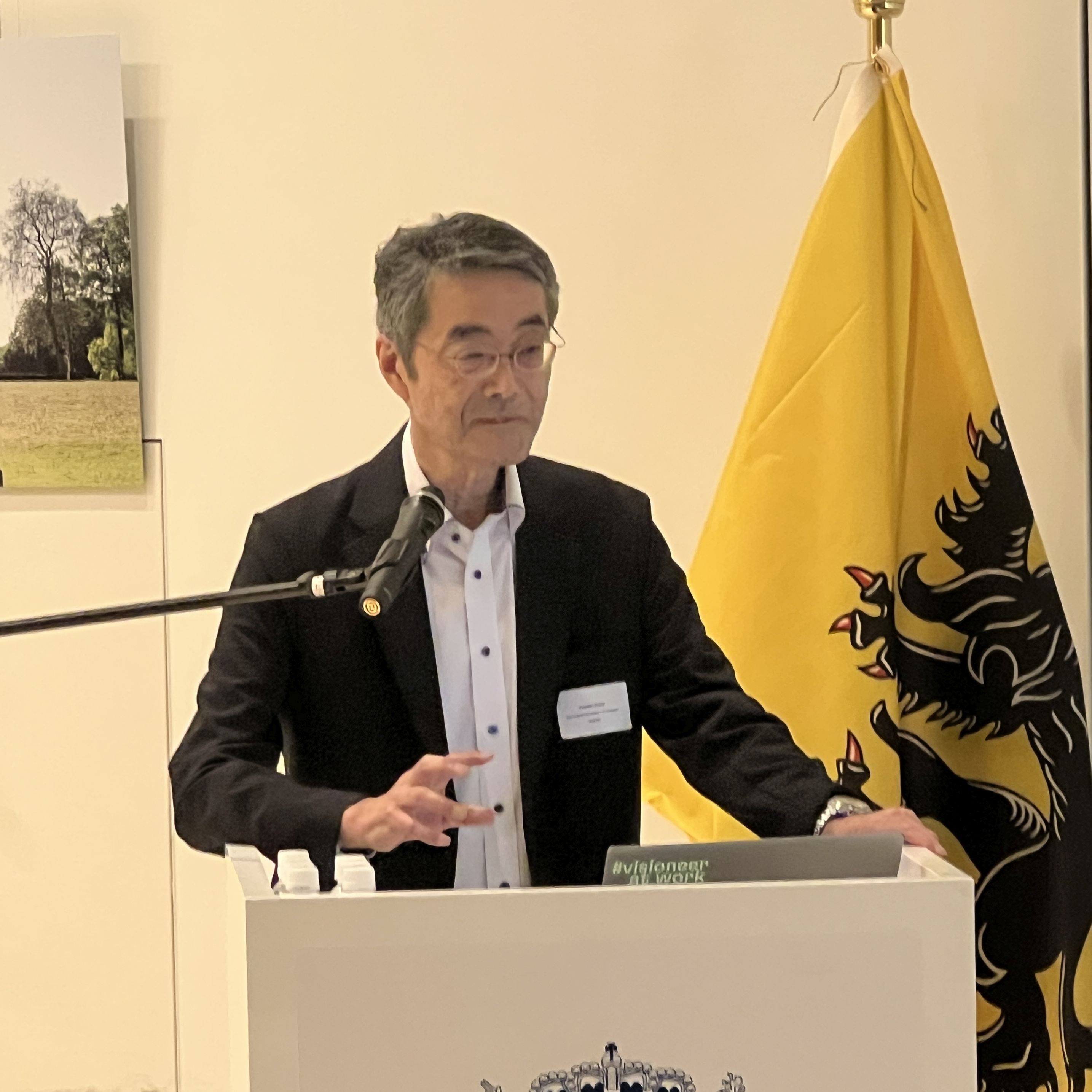
From vision to impact: international case studies
Case study presentations showed how research organisations are translating innovation into tangible sustainability outcomes. Ms. Mi Lin (JITRI, China) highlighted industry–academia partnerships in China and Japan that accelerate sustainable applications. Dr. Kazuki Saito (RIKEN, Japan) demonstrated how cutting-edge science in Japan delivers benefits beyond the lab. From South Korea, Professor Jin-Ho Yoon presented environmental research that supports climate resilience. Ms. Katrien Marent (imec, Belgium) closed the session by showing how imec’s strategic partnerships with industry and government are accelerating technology transfer in key areas such as nanotechnology and semiconductors. Collectively, the cases illustrated the power of global collaboration and research-driven innovation in advancing the SDGs.
A strong call for continued global cooperation
In her closing remarks, Ms. Julie Bynens, Secretary-General of the Department of Chancellery & Foreign Affairs (Flanders), applauded the depth and diversity of the day’s exchanges. She reaffirmed Flanders’ support for G-STIC and stressed the importance of building on the connections made during the symposium. Her message was clear: continued international cooperation in science, technology, and innovation is essential to achieving the SDGs.
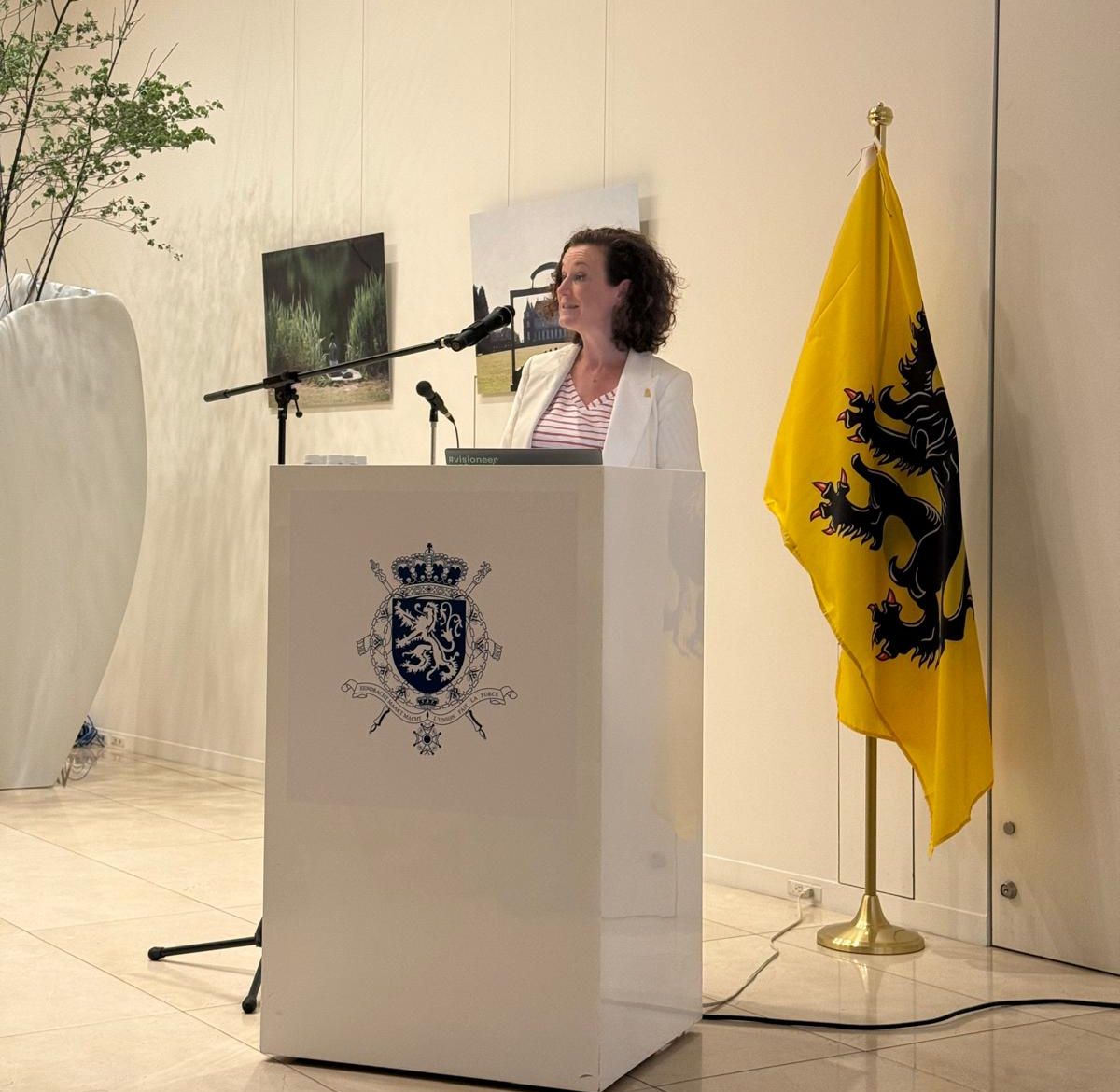
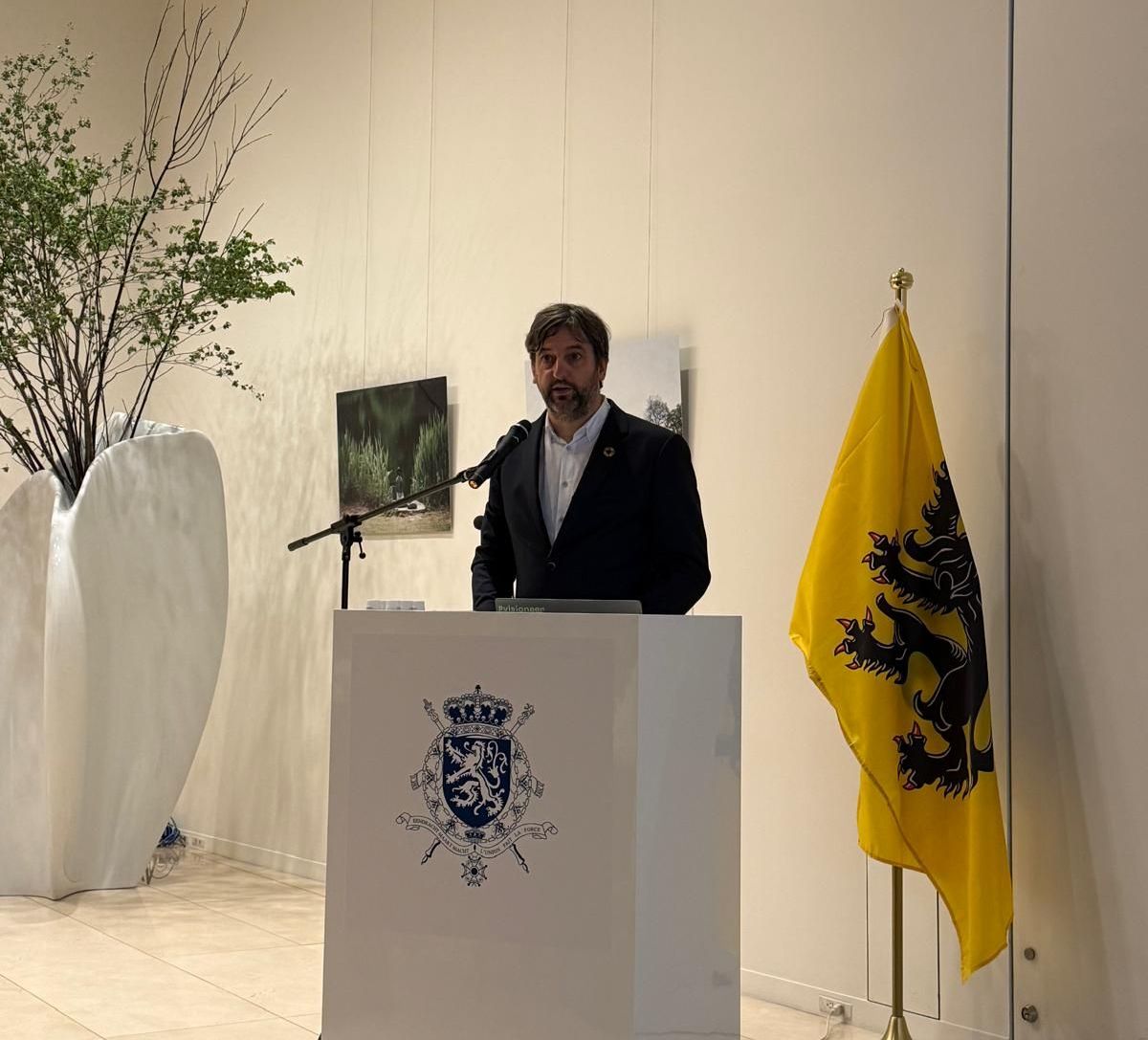
Accelerating sustainable innovation through global research networks
Dr. Van der Weken (G-STIC, VITO, Belgium) concluded the symposium by reaffirming the vital role of research organisations in delivering real-world, scalable solutions. He called for strong bridges across disciplines, sectors, and borders to ensure that innovation reaches where it is needed most. Highlighting Emphasising the power of partnerships, he stated: “Connecting the right people and ideas is what enables us to move from research to impact.” The Tokyo symposium, he noted, is not an end point but a catalyst for continued collaboration. G-STIC remains committed to building on this momentum and supporting new initiatives that advance the Agenda 2030.
VITO and STEPI sign MoU to advance joint innovation and policy research
On the sidelines of the symposium, VITO and South Korea’s STEPI signed a Memorandum of Understanding (MoU) to strengthen bilateral collaboration. The agreement represents a significant step forward in fostering joint initiatives and knowledge exchange to advance sustainable development through research, innovation and policy integration.
